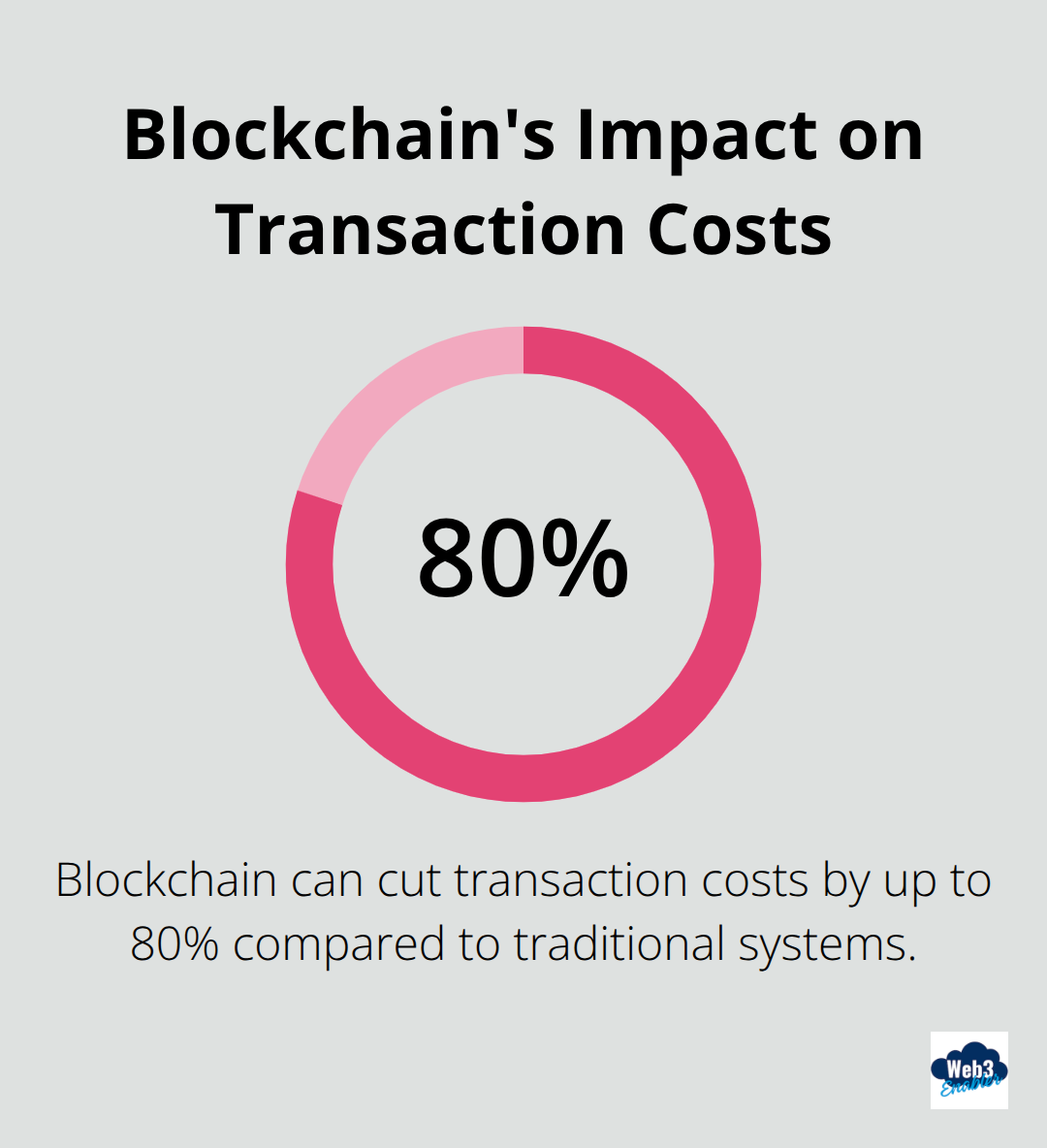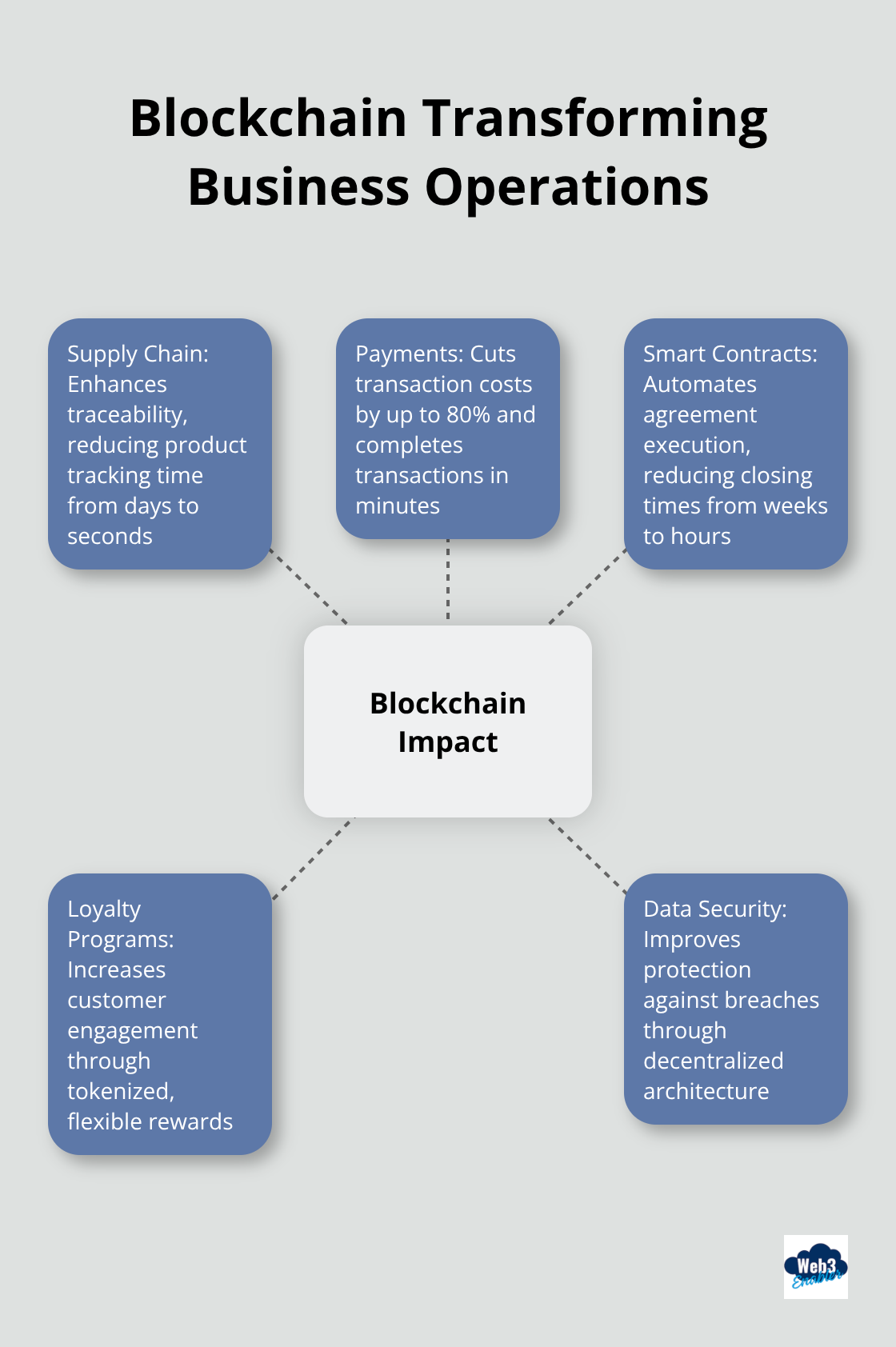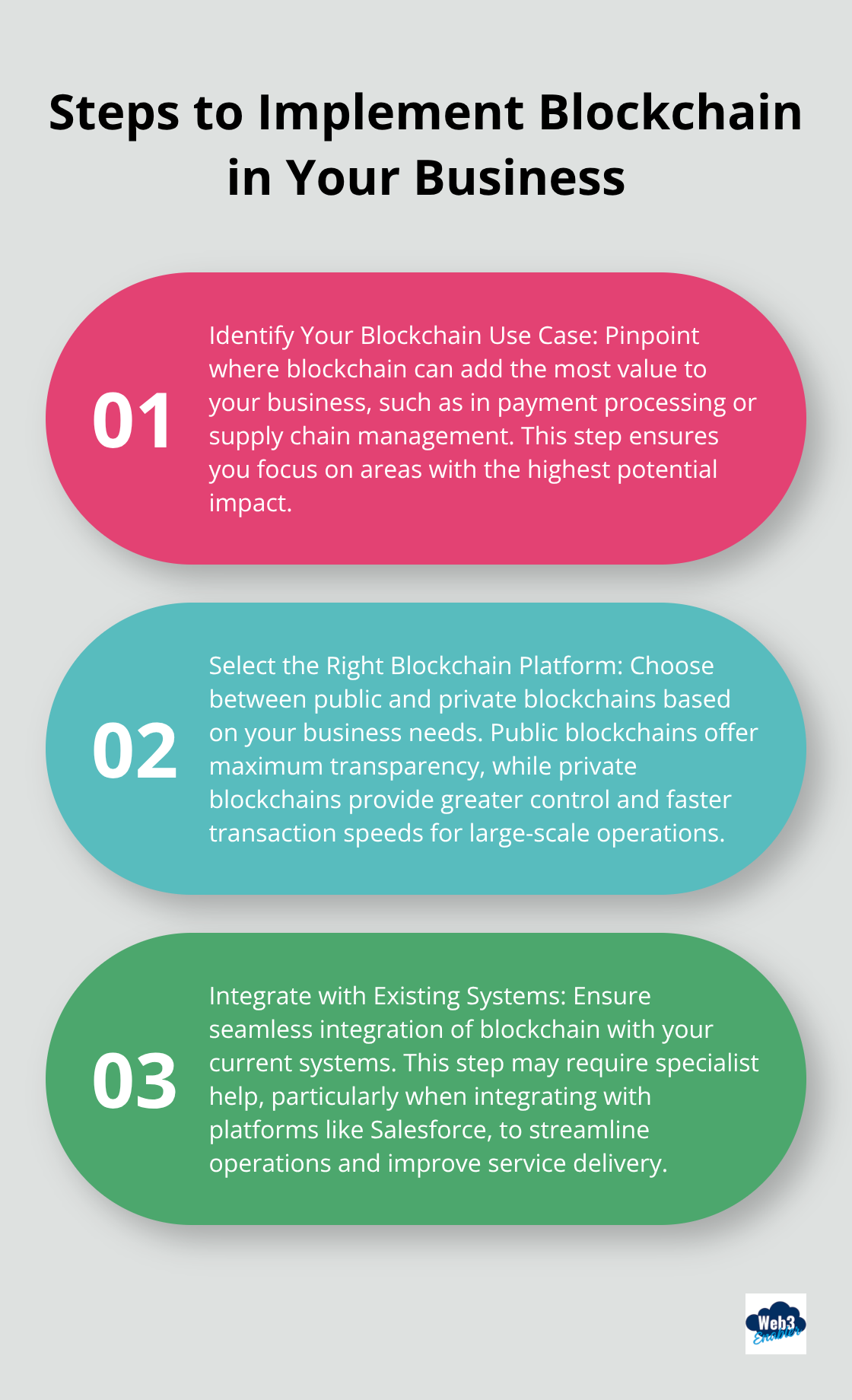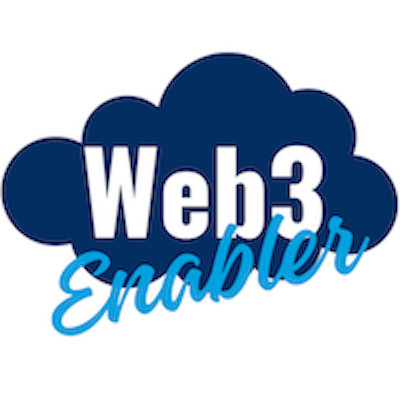
Blockchain is revolutionizing business development, offering unprecedented opportunities for growth and innovation. At Web3 Enabler, we’ve seen firsthand how this technology is transforming industries across the board.
From enhancing supply chain transparency to streamlining payment processes, blockchain’s potential is vast and largely untapped. In this post, we’ll explore how you can leverage blockchain for your business development strategy and stay ahead of the curve.
What is Blockchain’s Business Impact?
Enhancing Transparency and Trust
Blockchain transforms business operations by creating unparalleled transparency. This distributed ledger technology records transactions across a network of computers, making every action visible to all participants. The result? An unalterable audit trail that significantly reduces fraud and errors in business processes.
In supply chain management, blockchain tracks products from origin to destination. This capability allows businesses to verify the authenticity of goods, reducing counterfeiting and boosting customer trust. Digital transformation trends are reshaping various industries, including healthcare, retail, and manufacturing.
Streamlining Operations and Reducing Costs
Blockchain’s impact on traditional business models is profound. It automates processes and eliminates intermediaries, leading to significant reductions in operational costs and increases in efficiency.
Consider international payments. Traditional cross-border transactions often take days and involve hefty fees. Blockchain completes these transactions in minutes at a fraction of the cost. Some businesses have reported transaction cost reductions using blockchain-based payment solutions.

Bolstering Data Security and Privacy
In an era of frequent data breaches, blockchain offers a robust solution for data security. Its decentralized nature makes it extremely difficult for hackers to compromise the system.
Moreover, blockchain allows for selective transparency. Businesses can choose what information to make public while keeping sensitive data private. This balance is essential for maintaining customer trust while protecting proprietary information.
Revolutionizing Contract Management
Smart contracts, a key feature of blockchain technology, automate agreement execution. These self-executing contracts with the terms directly written into code eliminate the need for intermediaries, reduce costs, and minimize the risk of manual errors.
For instance, in the insurance industry, smart contracts can automate claim processing. When predefined conditions are met (e.g., flight delay), the contract automatically triggers a payout, speeding up the process and improving customer satisfaction.
Transforming Customer Loyalty Programs
Blockchain technology revolutionizes customer loyalty programs by making them more secure, transparent, and valuable. Tokenized loyalty points on a blockchain are easily transferable and can be redeemed across multiple platforms.
This interoperability increases the perceived value of loyalty points, encouraging customer engagement and retention. It also reduces fraud and administrative costs associated with traditional loyalty programs.
As we explore the key applications of blockchain in business, it becomes clear that this technology offers more than just theoretical benefits. It provides practical solutions to real-world business challenges, paving the way for innovation and growth across industries.
How Blockchain Transforms Your Business Operations
Streamlining Supply Chain Management
Blockchain technology offers unparalleled traceability in supply chain management. It creates an immutable record of every transaction and movement, allowing businesses to track products from origin to destination with pinpoint accuracy. This level of transparency reduces errors and fraud while building trust with customers and partners.
Walmart exemplifies this transformation. They implemented blockchain to trace the origin of food products. In the event of a foodborne illness outbreak, they can now trace contaminated products to their source in seconds (instead of days), potentially saving lives and minimizing financial losses.

Revolutionizing Payment Processing
Blockchain-based payment solutions reshape how businesses handle transactions. Traditional systems often charge up to $330 in fees for a $10,000 transfer and take 2–5 business days to settle. Blockchain can cut these costs by up to 80%, completing transactions in minutes.
A Juniper Research study found that blockchain deployments will enable banks to save up to $27 billion annually by 2030 through reduced settlement times. This efficiency isn’t limited to banks – businesses of all sizes can benefit from faster, cheaper payments.
Automating Agreements with Smart Contracts
Smart contracts are self-executing agreements with terms directly written into code. They automatically enforce and execute contract terms when predefined conditions are met, eliminating intermediaries and reducing the risk of disputes.
The real estate industry demonstrates the power of smart contracts. They streamline property transactions by automatically transferring ownership and funds once all conditions are met. This automation reduces closing times from weeks to hours and significantly cuts costs.
Enhancing Customer Loyalty Programs
Blockchain technology breathes new life into customer loyalty programs. Tokenizing loyalty points on a blockchain makes rewards more valuable and easier to redeem across multiple platforms.
Starbucks’ blockchain-based loyalty program allows customers to earn and exchange ‘stars’ for rewards more flexibly. This approach has not only increased customer engagement but also provided Starbucks with valuable data on consumer behavior.
Improving Data Security and Privacy
In an era of frequent data breaches, blockchain offers a robust solution for data security. Its decentralized nature makes it extremely difficult for hackers to compromise the system. Moreover, blockchain allows for selective transparency, enabling businesses to choose what information to make public while keeping sensitive data private.
This balance is essential for maintaining customer trust while protecting proprietary information. As businesses continue to explore blockchain’s potential, the next step is to understand how to implement these transformative applications effectively in specific business contexts.
How to Implement Blockchain in Your Business
Implementing blockchain in your business strategy requires a thoughtful approach to reimagine your operations for enhanced efficiency, security, and transparency. Here’s how you can make blockchain work for your company:

Identify Your Blockchain Use Case
Start by pinpointing where blockchain can add the most value to your business. Payment processing often serves as an excellent entry point. Traditional banking methods can take 1-5 business days and incur fees up to 80 CAD per transfer. Blockchain-based solutions slash these times and costs dramatically.
Supply chain management also presents a prime opportunity for blockchain implementation. A food distributor implemented blockchain to track their products from farm to store. This increased their ability to trace contaminated products from 7 days to just 2.2 seconds, significantly reducing the impact of potential recalls.
Select the Right Blockchain Platform
The choice between public and private blockchains is crucial. Public blockchains like Ethereum offer maximum transparency but can be slower and more expensive for large-scale business operations. Private or permissioned blockchains offer greater control and faster transaction speeds.
For businesses handling sensitive data or requiring high transaction volumes, a private blockchain often proves the better choice. A healthcare provider opted for a private blockchain to manage patient records, ensuring HIPAA compliance while improving data accessibility across their network.
Integrate with Existing Systems
Seamless integration with your current systems is key to successful blockchain implementation. This step often challenges many businesses, but it doesn’t have to be complicated. Specialists can help integrate blockchain with existing business systems, particularly within the Salesforce ecosystem.
A financial services firm integrated blockchain-based payment processing into their Salesforce CRM. This allowed them to accept stablecoin payments and track cryptocurrency holdings directly within their familiar Salesforce interface, streamlining operations and improving client service.
Overcome Implementation Challenges
Common hurdles in blockchain implementation include scalability issues, regulatory compliance, and resistance to change. Addressing these head-on is crucial for success.
To tackle scalability, try starting with a pilot project in one department or for a specific process. This allows you to iron out issues before a full-scale rollout. A retail chain started with blockchain-based loyalty points in a single store, then gradually expanded to their entire network over six months.
For regulatory compliance, stay informed about evolving blockchain regulations in your industry and jurisdiction. Working with a knowledgeable partner (like Web3 Enabler) can help navigate these complex waters.
Lastly, overcoming resistance to change requires clear communication and demonstrable benefits. Show your team how blockchain can make their jobs easier and more efficient. When implementing a blockchain-based supply chain solution for a manufacturing client, workshops demonstrated how the new system would reduce paperwork and improve inventory tracking, gaining buy-in from skeptical employees.
Final Thoughts
Blockchain technology reshapes business development across industries. It offers unparalleled opportunities for growth, efficiency, and innovation. From streamlined supply chains to revolutionized payment processes, blockchain’s impact transforms businesses worldwide.
The future of blockchain adoption looks promising. Industries increasingly recognize its potential to solve long-standing challenges. We see a shift from experimental pilots to full-scale implementations, with blockchain becoming an integral part of business strategies.
Web3 Enabler helps businesses navigate the complexities of blockchain implementation. Our expertise in integrating blockchain solutions (especially within the Salesforce ecosystem) enables companies to harness this powerful technology. We stand ready to support your journey in blockchain business development.







